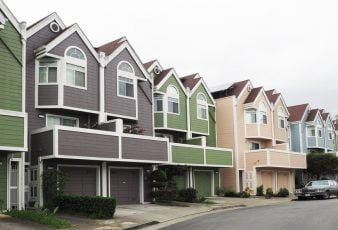Tenant Security Deposit!
It is all about asking for money that the landlord believes will assist in covering any type of damages which might happen during the occupancy.
However, in reality, the concept of the security deposit is not that simple. A landlord can not take the tenant’s security deposit for granted. If the individual is doing so, it will be one of the biggest mistakes.
A landlord always remembers that in case anything wrong happens to the security deposit, the tenant has the option of seeking help from the best tenant lawyers in Atlanta GA. The experienced Tenant Lawyers Atlanta will be able to help the tenant to get their deposit back.
Here, in this article, we will talk about the key things that everyone should remember about the security deposit.
Tenant Security Deposit Limit
The main purpose of having a security deposit is to reimburse the landlord in case any damage or losses, like non-payment of rent, take place.
First, we should know how small an amount can be collected under the tag of tenant security deposit. State law sets up an upper limit for this amount. Thus for different states, the amount of tenant security deposit usually varies.
Although the state has already set the amount, it will still be best to have a chat with the local councilor, as the laws in some areas change frequently.
In approximately 20 states, there are simply no limits on the size of security deposit a landlord can change. But, at the same time, landlords in some states are limited. Here, they can only charge a maximum of one month’s rent as the security deposit.
There are also some laws that allow the landlords to charge more than that in order to cover pets, changes to the property, or increased liability risks.
Some states also split the same deposit into various tiers. For example, for unfurnished properties, some states let the landlord ask for a tenant deposit of two months’ rent. On the contrary, on the basis of age, some states set the rules.
In case the age of a tenant is less than 62 years, the landlord can charge two months’ rent, but in case the tenant is 62 years old or more than that, the individual needs to pay only one month’s rent as a security deposit.
Use Of A Tenant Security Deposit
There are basically 5 genuine reasons for which the landlord can keep a part of all of the tenant security deposit. Once again, all these things are different from state to state.
1. Damage
The damage does not really imply those usual wear-and-tear. Here are the damages that we want to imply here.
- Big burns, holes, or stains on the carpet.
- Multiple or big holes in the walls.
- Broken windows, doors, or appliances through negligence.
2. Nonpayment Of Rent
In order to cover all those unpaid rents, the landlord can take a part of the entire amount of the tenant security deposit. The landlord needs to notify the tenant first of the unpaid or due rents and then can take legal action against the tenant with the help of Tenant Lawyers Atlanta.
3. Cleaning Cost
All those normal cleaning costs that are associated with turning over a rental; property can not be cut out of a security deposit. But, in case the tenant left the property along with left behind furniture and excessive trash, the landlord needs to pay to get them removed.
The landlord can deduct the amount from the security deposit.
4. Unpaid Bills
In order to cover up any unpaid utilities or other bills that are related to the rental, the landlord has the right to take it from the security deposit.
5. Tenant Breaks The Lease
In case a tenant breaks their lease, the landlord has the authority to keep the tenant’s security deposit entirely or at least a part of it. This always depends on the applicable state laws.
Conclusion
In case you are having any trouble related to the tenant security deposit, the best way to get it solved is to consult with one of the best Tenant Lawyers Atlanta. The professionals are completely aware of the local laws and will be able to guide you with that.
Read Also:




























